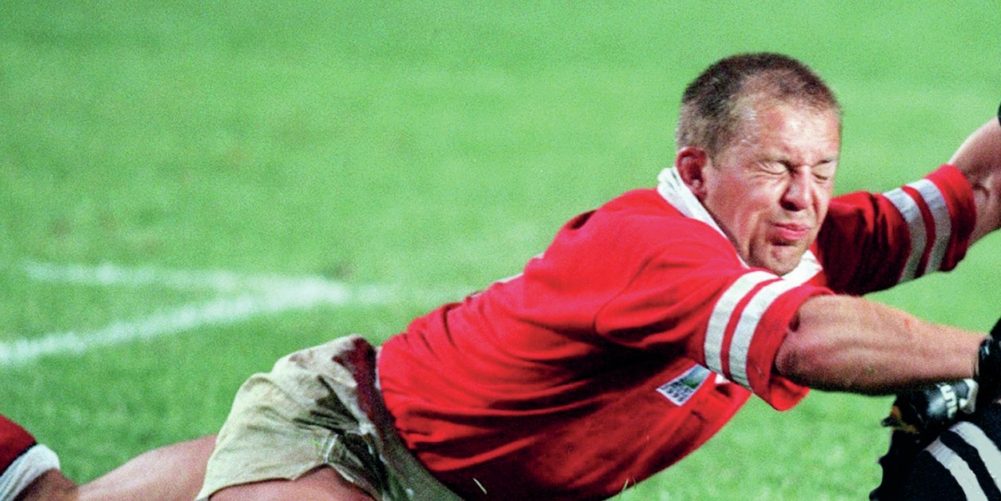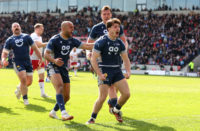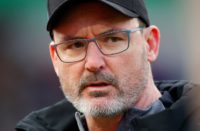THE MAN TRULY IN THE KNOW
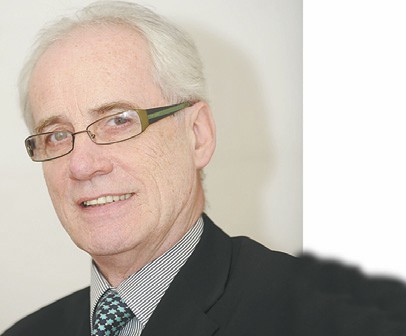
At the last count, Alexander Zverev's tennis earnings had topped $32 million, enough to place him comfortably in the top ten on the all-time money list. The 25-year-old German has many strings to his golden racquet beyond being the reigning Olympic champion. He can also spin a yarn, like the one about the former Wales rugby international now responsible for making the Hamburger fit to knock Novak Djokovic off his global pedestal.
When Zverev, ‘Sascha' to his friends, spoke of Mark Bennett before the French Open, he sounded in awe of his new fitness coach's courageous track record for taking a supposedly extreme solution to the small matter of losing a finger.
“Mark's insane,” Zverev said. “He has a screw loose. He was a rugby player who wanted to go to the World Cup. But he broke his finger and the doctor said he couldn't go. Mark said that he didn't need the finger and the doctor still said he couldn't go. So he saw another doctor, had his finger amputated and went to the World Cup.”
Like Kris Kristofferson's song The Pilgrim the story can be described as ‘partly truth and partly fiction' except in Zverev's version there is rather more of one and much less of the other.
“I damaged the index finger of my left hand in a car accident,” says Bennett, 51. “It happened a few months before the 1995 World Cup in South Africa and I thought I was in with a chance of making the squad.
“The doctor examined the damage and said: ‘Look, you have two options here. We can treat it, bandage it but you won't be able to do anything for six months'.
“Six months? The doctor also spoke about the possible risk of gangrene. Then he moved onto the second option: ‘We can just cut it off and you'll be ready after two weeks'.
“Six months and the risk of gangrene or half an inch of one finger? For me there was only one decision. And that's how I came to lose the top joint.''
It turned out to be a smart move. Bennett made the cut for the World Cup as an uncapped flanker who duly forced his way into the starting back row against both the All Blacks and Springboks.
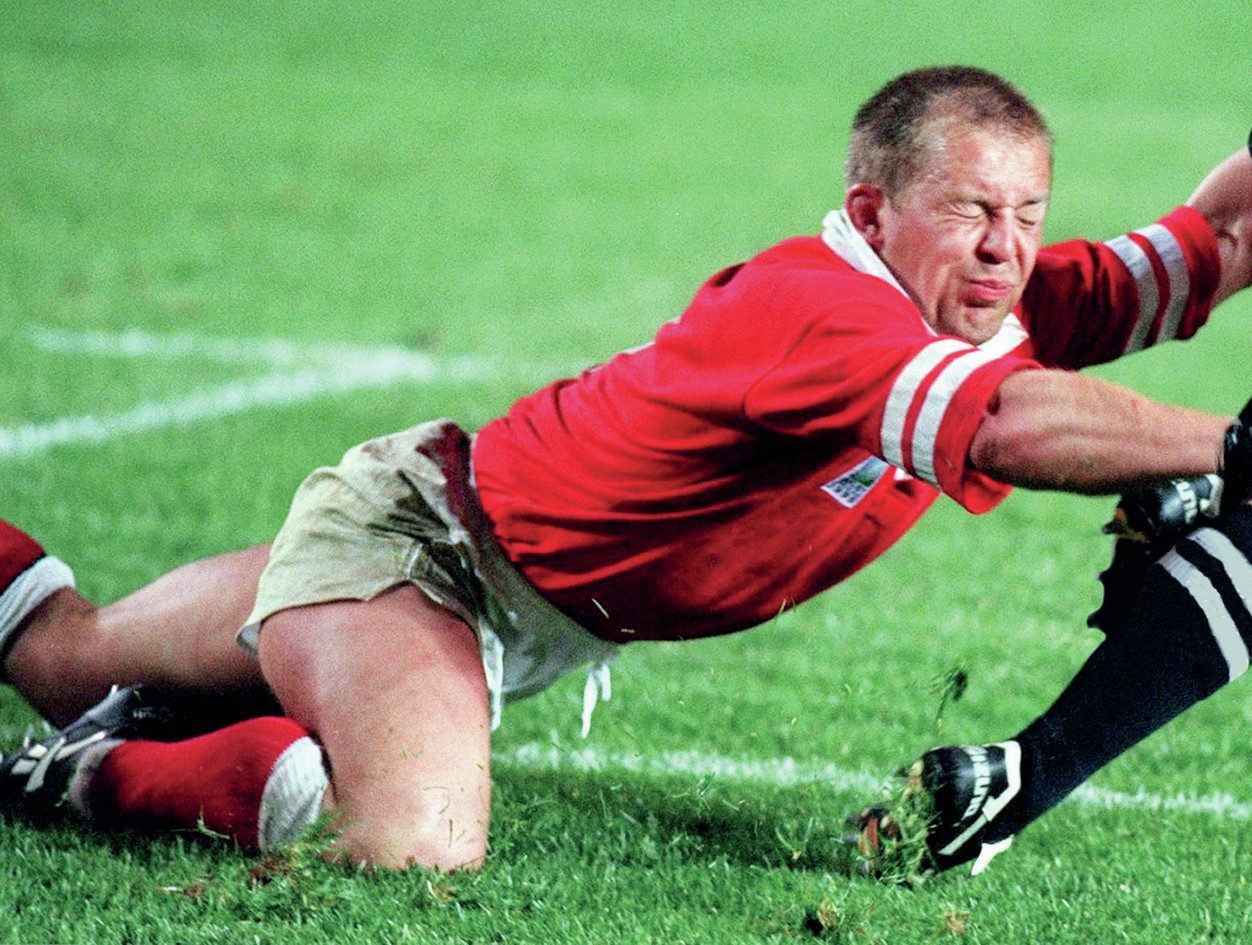
The Welshman did it, what's more, without losing anything more than a small part of one finger which has the advantage of saving time on the nail cutter. Put another way, he didn't have to do a Red Conway. The New Zealander, who died four months ago at the age of 87, had the often broken third finger of his right hand amputated rather than risk another break and miss the All Blacks' tour of South Africa in 1960.
Bennett's journey has taken him a long way from his native Crynant, once renowned for the deepest pit in the South Wales coalfield: to Neath, Swansea, Cardiff, Bristol, Johannesburg, Twickenham, Moscow and now Monte Carlo.
He will be back at Zverev's home on the Riviera next week to oversee the next stage of his employer's recovery from long-term injury. If the finger topic crops up, it will be treated as nothing more or less than a bit of banter, not to be taken seriously.
“We've had a laugh about it,” says Mark while exercising his four border collies (Gwen, Chef, Meg, Tatus) near the family's home outside Swansea. “By the time Alexander heard the story it had been embellished but if it makes him happy, it's ok with me.”
Bennett's change of sport came after 20 years in a variety of coaching roles since injury forced him to retire at Bristol when Bob Dwyer ran the show in tandem with Dean Ryan. Those roles included a stint as the RFU's head of sports science and medicine followed by a specialist coaching role with the Russian national team.
His switch of sport began with a call out of the blue from a friend from Bristol days, former Scotland back row forward Ross Beattie. “Ross runs a gym in Monte Carlo and he rang to tell me he had a tennis player who was looking for a fitness coach and would I have a chat with him,” says Bennett.
“That's how Alexander heard about the supposed amputation of my finger, from Ross. I went out to Monte Carlo and Alexander asked me if I'd work with him. The agreement we have is that I do a maximum of 35 weeks a year working on his fitness.”
Zverev made his mission statement clear: to be the world No. 1. He had come close to it before tearing ankle ligaments during the second set of the French Open semi-final against Rafael Nadal in June, an injury severe enough to wipe him out of action for the rest of the year.
“We spent 14 hours a day together over a period of three weeks at a rehab clinic in Germany and we'll start work in another ten days' time on pre-season,'' says Bennett. “In rugby you work all week to kick-off on a Saturday or a Sunday and everything will be done a couple of hours later. In tennis you can be given a 2pm start but you may not get on court for another five or six hours.
“We played a match in Acapulco that didn't start until three o'clock the following morning. A lot of the time you're sitting in a van waiting for the call which means I can get on with some research work into a university project.''
If all goes to plan for Zverev next year, Bennett will hope to be otherwise engaged when Wales open their World Cup against Fiji in Bordeaux on September 10. It also happens to be the day of the US Open men's singles final in New York which might just be of more than passing interest back in Crynant.

